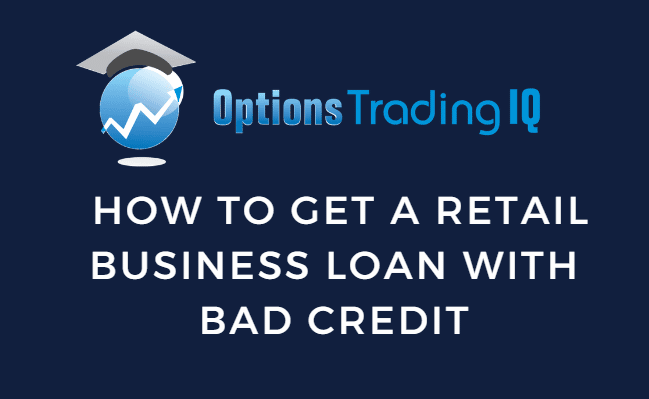

Contents
Are you looking to get the money you need to grow your retail business? But poor consumer credit history is preventing you from getting the money you need.
Maybe you have low credit scores, foreclosures, or collections that are preventing you from getting finances for your business. You might have tried to apply for financing to no avail and thinking about giving up on business loans.
Your problems are about to be over. In this post, we will teach you how to get a retail business loan with bad credit. We will tell you exactly how to get the finances you need – step by step.
So, make sure you read to the last word to know what to do!
Tips to Consider
These are the things you need to follow to get a business loan with a bad credit history.
Separate Your Personal and Business Information
You must know how to separate your personal assets and the tradelines from those of your business.
Personal Credit
Your personal credit is tied to your identity. The major credit bureaus – Experian, Transunion, and Equifax use self-identifying information to tie tradelines back to you. This information includes social security number, address, phone number, and name.
Companies that provide credit usually request this type of information when you first apply for a business loan. They can run a credit check before giving you a tradeline.
What if all identifying information for your business was completely different from your personal information? Your retail business has to take its own identity. You can successfully achieve this with business credit.
Business Credit
Business credit works the same way as personal credit but it’s for a business or trade.
So, business credit is a credit report that is linked to your business EIN (employer identification number) that is separate from your consumer credit report linked to your social security number.
When you have business credit, you can rely less on your consumer credit. It helps you separate your consumer or personal credit from your commercial credit. Instead of using your debt utilization and debt ratio, investors or lenders care more about how well you manage your debt when using business credit.
Another benefit of business credit is that you can get it without a personal guarantee. This is a good thing because you are not personally liable for your business debts. Business credit is also fast to build. Once you’ve got it, apply fast with CreditNinja.

Photo by Scott Graham on Unsplash
Build an Identity for Your Retail Business
The first thing you need to do is register your business with the state. The requirements for registering a business are a little bit different from one state to another.
But you can easily do this on the state website. You then need to apply for an employer identification number with the IRS once you have registered your business with the state. It’s the EIN that gives your retail business its own identity.
At this point, you have successfully separated your consumer credit from your commercial credit.
Tell the Business Credit Bureaus You Exist
The next thing you need to do after creating an identity for your enterprise is let the business credit bureaus know you exist.
Three credit bureaus exist for business credit. They include Dun and Bradstreet (D&B), Equifax Business, and Experian Business. The main business credit bureau is Dun and Bradstreet. They are by far the largest and most commonly used for evaluating commercial credit.
We recommend building your commercial credit with Dun and Bradstreet. You can create a free profile with Dun and Bradstreet. This platform can help you navigate credit risk, customize credit reports, and set up credit limits and custom scorecards.
After creating your profile with D&B, you will receive a DUNS Number. The DUNS Number ties into your business credit history with D&B.
Get a Business Checking Account
Now you need to get a checking account for your business. You can open a business bank account even if you have bad credit.
We recommend using mid-sized banks when opening a business bank account. You may want to avoid the largest banks because they may have higher fees. Take your time to shop around with credit unions and mid-sized banks.
Your retail business is not going to qualify for a large loan immediately after its establishment. But you can get some tradelines right away for your business.
Start Building Your Business Credit
As a retail business, you should be receiving payments at some point for your services or goods. Payment providers can help you build credit while providing a professional method for receiving payments.
You can get vendor credit even if you have bad credit. Many companies offer vendor credit and they will allow you to create business profiles. You can order things from them and they will give you invoices. This allows you to buy their products and pay at a later date.
The real benefit of vendor credit companies is they report to Dun and Bradstreet. So, you can confidently use vendor credit accounts to start building your business credit.
After vendor credit, you can start getting store credit. Many stores out there lend to retail businesses without checking personal credit scores. You just have to wait for a few months after ordering vendor credit lines. The tradelines will show on your business credit report.
Once that happens, you can get credit cards from big stores. You can also get a secured business credit card.
Choose the Ideal Type of Business Loan
You’ve got more than a few business loan options to consider if you have bad credit.
Secured Business Credit Card
This is very similar to the secured credit cards offered to people who are trying to build their personal credit.
You have to provide a deposit to the credit card company that will act as collateral to the credit line they give you. The size of the credit will be equal to the size of the deposit you provide. If, for example, you deposit 3,000 USD on your business credit card. You can expect a 3,000 credit line.
The best thing about a business credit card is that it doesn’t need a personal guarantee. This is so because your deposit protects the credit company from any failed payments.
Cash Flow Financing
Another popular way you can fund your retail business when you have bad credit is cash flow financing.
This type of financing is usually backed by the expected cash flows of a business. It is an easy and fast way to secure money for your business.
Creditors and banks will analyze the positive cash flow of your business to determine the amount of credit they can extend to your enterprise. Cash flow financing can be long-term or short-term. For your first loan, the terms of payment may be as short as three months.
The rates of cash flow loans depend on the risk, which can range from 8 to 50 percent. Also, daily, weekly, and monthly paybacks are available.
Merchant Cash Advance
The next business loan option you can consider is merchant cash advance (MCA). It is a short-term financing source for a small business.
A merchant cash advance is a cash in exchange for future credit and debit card sales. A lender provides your retail business with a lump sum upfront in exchange for receivables withdrawn from your daily credit card revenues.
After receiving the cash, payments will be withdrawn at daily or weekly intervals by the lender from your business bank account.
Merchant cash advances don’t require any collateral, high credit rating, or strong business history to qualify.
Invoice Factoring
This is a type of financing you can use to improve cash flow. Invoice factoring involves the sale of accounts receivable less a small service fee.
Instead of waiting for a month or two for customer payments. A retail business would sell its open invoices to a factoring company for an immediate cash advance.
The process is usually simple. Your business provides services or goods to customers. Once you bill the customers, you send the invoices to your factoring company. The factoring company advances your business a percentage of the value of the invoice on the same day.
The factoring company will forward the invoice to your customer. Then the customer will make payments to the factoring company according to the terms of the invoice.
The factoring company will deduct its service fee and send the remaining amount to your business account.
Microloans
If you need funding for working capital and the acquisition of supplies or materials, you should consider microloans. Microloans are usually small and designed to boost retail businesses. They are available through online platforms and nonprofit organizations. A microloan can be as small as $500 and as large as $50,000, depending on the program.
In Conclusion
We have seen that it is possible to get a retail business loan with bad credit. There are even quite a few options to choose from. But, keep in mind that much of getting a business loan depends on your industry and what you are trying to get funded.
Trade safe!
Disclaimer: The information above is for educational purposes only and should not be treated as investment advice. The strategy presented would not be suitable for investors who are not familiar with exchange traded options. Any readers interested in this strategy should do their own research and seek advice from a licensed financial adviser.










